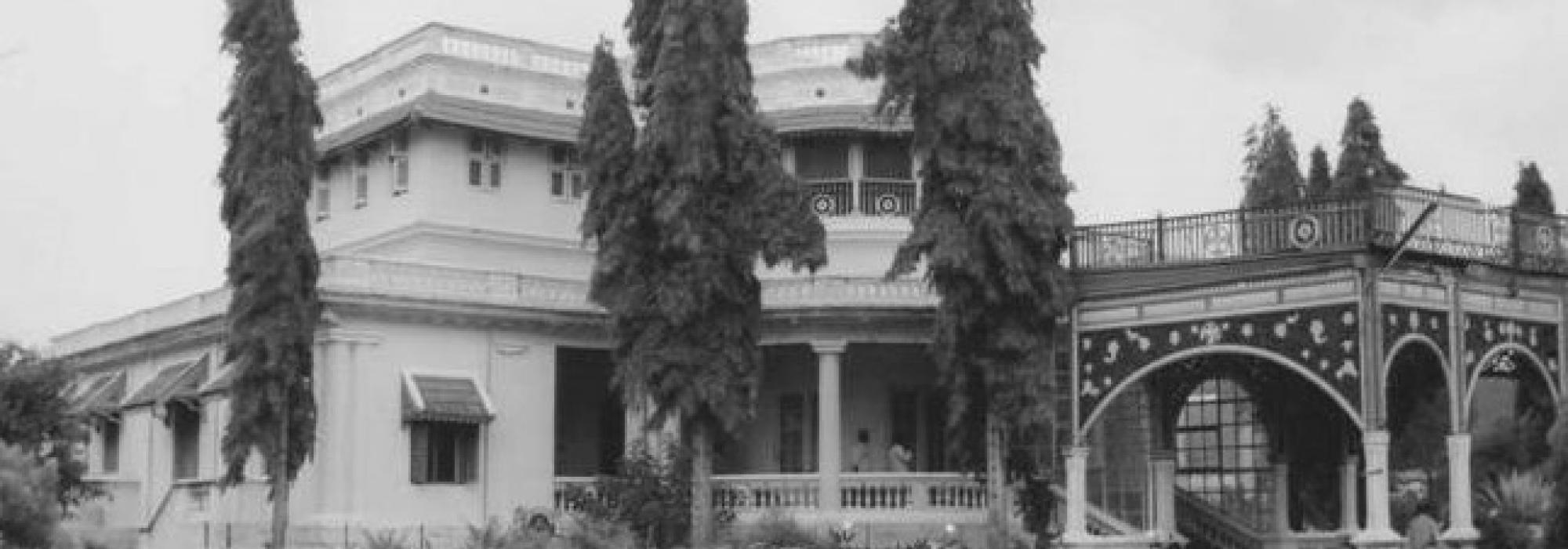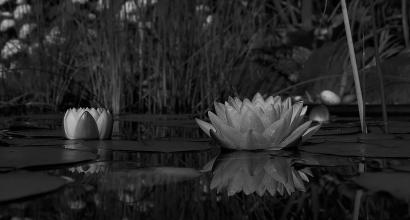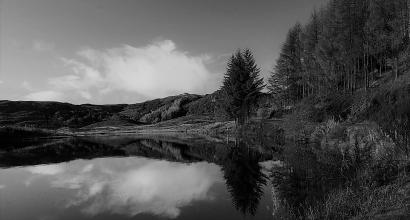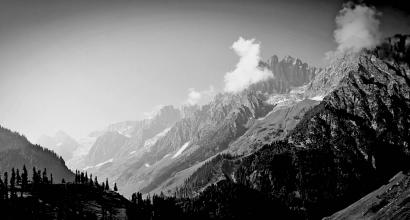An Experience at the Vasanta Mahal
On the evening of Deepavali in 1923, we, i.e., Sastri and his friends, reached Mysore. As per the directions of Sir Mirza Ismail, our stay was arranged at the Vasanta Mahal. There were no pre-determined errands or tasks to be carried out. Mirza Saheb wanted Sastri to spend the evening in whatever manner he wished to. It was to proceed ‘as the spirit moves’. I shall narrate a couple of incidents that took place then.
The Grandeur of our Meals
The scene that we saw at the dining hall that night was a celebration for my eyes. There were seats decorated with garlands of jasmine flowers arranged for us. A large plantain leaf was laid in front of every seat and there was a silver plate, a silver cup and a silver tumbler placed in the middle. There was big tumbler next to each plantain leaf to drink water from. The dining hall was decorated with floral garlands and fragrant incense sticks all around. I was awestruck seeing all this. Before we sat down for dinner, I removed my seat and placed it aside. Sastri asked me:
“Why did you do so?”
Me: “Such grandeur does not go well with me”.
Sastri: “Don’t be too loud. Keep your opinion for yourself. People like us should never bring to mind the difference that exists between aristocracy and poverty. Whoever invites us, does so with a lot of affection. They will treat us with whatever they possess and in the manner they wish to. Can we expect from the royalty the kind of treatment we get in our houses? What’s the greatness of the king? Can we imitate the king in our houses? Everyone works and behaves in accordance with their stature in the society. We will need to see it as their natural expression.”
It was like a slap on my mind. I sat back like everyone else and had my meal.
Starting from the next day, groups of people kept coming to meet Sastri. He could hardly get any rest.
The Circumstances in Greece
One morning, it was only him and I, sipping coffee. I asked him –
“Did you happen to visit Greece during your travels in Europe?”
Sastri: “Yes, I have been there. I spent a week in Greece”.
Me: “How are the Greeks today? Do they possess any of the characteristics that is found in the works of Socrates, Plato, Aristotle, Aeschylus and Euripides?”
Sastri (Heaving a sigh) – “The Greeks display just as much the reverence to their ancestors as we have retained today for ours. ‘Modern Greek’ is a term used to suggest the derogation their values have undergone today. Today. Greece is in a more pitiable condition than our country. It’s gone. It is all gone!”
He cribbed in this manner. I got to know the disheartenment Sastri had with regards to our country when he spoke the above words. His pain was evident.
Once, Mirza Saheb escorted Sastri and his friends to the Karapura Camp that lies near Heggadadevana Kote. We witnessed the efficiency with which Mirza Saheb worked. He hadn’t risen to the post of a Diwan yet and only served as the Private Secretary of the king. The camp at Karapura was getting ready to welcome the Viceroy. Lord Reading was the Viceroy back then, if my memory serves me right. Mirza went into each one of the camps and checked the kind of tables and chairs were placed there and where they were to be placed. He picked furniture with his own hands and placed them wherever he thought they rightly belonged to. Mirza accompanied Sastri up until the river and explained to him where the kheddas were made.
I previously mentioned that there were many who came to meet Sastri. Sahukar Vardhamanayya was one among them. Vardhamanayya requested Sastri to visit his factory and he gave me the responsibility of bringing Sastri along. Those were the early days of Krishnarajendra Mill. Sastri visited the mill and also a factory called Essential Flower Products. He also paid visits to a couple of other industries and remarked that professional industries of India were to be supported by the government and citizens.
Royal Treatment
During Sastri’s stay in the Vasanta Mahal, everyone who had accompanied him were treated with royal comforts. Yet, we all had to maintain some kind of discipline. Vajapeyam Venkatasubbayya and I had a certain misgiving in our minds.
As per the strict rules of discipline followed there, we were not supposed to indiscriminately throw clothes around. We were not supposed to walk around wearing no upper garment. We had to refrain ourselves from shouting out loud and chatting recklessly. ‘Adabse’ (decency) was to be maintained at all places. However, both of us were extraverts and ‘unpolished’ in our mannerisms. I was more prone to doing mischief compared to Venkatasubbayya. We decided that we were to spend at least one day away from the royal comforts of Vasanta Mahal.
One day, around seven thirty in the morning, we came close to the gate. The superintendent of the Vasanta Mahal, Subrahmanyaraje Aras was there.
Su: “What is this?”
Me: “We are stepping out to munch on some masala dosa today”
Su: “Do you need to go out for such a simple thing! Should you go to the city merely for this? What would his majesty say if he comes to know of this?”
He stopped us in this manner and sent us back to the Mahal. Plates were arranged before us even as we sat down. Fragrant and hot masala dosa was served to us on the plates. Coffee was served in large cups. How many dosas could we eat after all?
We looked at each others faces – our game had come to an end!
Fruitless Effort
After two to three days, we tried once more. We got caught by Subrahmanyaraje Aras yet again.
Su: “What is it this time?”
Me: “The thumb’s segment of my footwear is torn. I will have to get it stitched”.
Su: (Snatching the letter that I held in my hand and calling out for a servant. To the servant,) “Go, get this repaired. Don’t we have a cobbler who works on the leather requirements for our horse stable? He repairs reigns, coaches and other things made of leather. Would this footwear be a difficult thing for him to mend?”
I will need to mention yet another thing at this juncture. Subrahmanyaraje Aras was a friendly person and was known for his humor. His brother Devaraje Aras and I were classmates and thick friends. Subrahmanyaraje Aras knew this very well. Thus, I had quite some liberty with him.
Venkatasubbaya and I were disappointed twice. We thought that we should give it a final try. We set out one more day and encountered Subrahmanyaraje Aras this time too, right at the gate!
Su: “Where to?”
Me: (Pointing at my head) “There is too much grown here. We are going to get it cut”
Su: “My goodness! Do you need to get on to the streets for thus purpose? He will come to the place where you are. Don’t we have a barber back here in the stables of the palace?”
In this manner, our last attempt also failed. A barber who belonged to the palace came to me and gave me a nice haircut.
Extempore Poetry (āśu-kāvya)
That afternoon, as Venkatasubbayya and I sat talking to each other, we recalled the manner in which our efforts (to sneak out) were defeated thrice. As we thought about the experience again and again, the following śloka occurred to me:
आपाद-मौळि-पर्यन्तं
राजसेवक-सेवितः।
गुण्डो विराजते हृद्य
श्रीनिवास-कृपा-बलात्
“Thanks to the blessings of Srinivasa (Sastri), this Gunda (DV Gundappa) has been pampered from foot (foot-wear) to his head (hair-cut) by the royal servants”.
I placed this in the hands of Venkatasubbayya. He showed it to Subrahmanyaraje Aras. Aras read it and had a hearty laugh. He handed it over to our mutual friend – S.G. Sastri, who kept it in his pocket for a very long time to put it timely use. He was waiting for an occasion to pull a prank on us using the poem.
To be continued...
This is the twenty-second part of the English translation of the Second essay in D V Gundappa’s magnum-opus Jnapakachitrashaale (Volume 6) – Halavaru Saarvajanikaru.







































